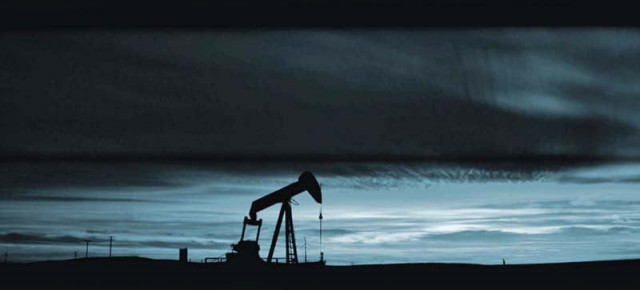Pakistan's oil output drops 8% with gradual fall in reserves
No major discoveries were made to offset the depleting deposits

No major discoveries were made to offset the depleting deposits.
In the previous fiscal year 2014-15, the country’s oil production stood at 95,000 barrels per day, said Nabeel Khursheed at Topline Securities.
Pakistan's oil and gas discoveries touch record
“We attribute this decline to the depleting oil reserves and absence of any major oil discovery,” he said.
Khursheed said most of the oil-producing companies continued to take production from the previously discovered fields, where deposits were falling gradually with the passage of time.
“Production from the fields drops at an average of 3-4% per year… New discoveries are a must to keep production on the higher side.”

Sadiq Samin at Sherman Securities said attempts aimed at finding new hydrocarbon deposits remained low in the year under review due to “existing low oil prices in world markets for quite a long period now... Owing to the low oil prices it is not feasible to make attempts for new discoveries.”
Available data of the Pakistan Petroleum Information Service (PPIS) suggested that exploration activities fell 39% in the first 11 months (July-May) of fiscal year 2015-16.
As many as 27 exploratory wells were drilled by the exploration companies during the 11-month period against 44 wells in the corresponding period of previous year, it was learnt.
Barrel along: After a decade, Pakistan resumes crude oil export
Khursheed foresaw a revival in oil exploration activities in the current fiscal year that started in July with preparation of fresh plans by the exploration firms.
“Mardan fields may prove to be a big discovery in 2016-17. They are expected to produce 4,000 barrels per day,” he said.“New discoveries are expected to take production to the FY15 level of 95,000 barrels per day.”
He said total gas production stood flat at an average of 3,939 million cubic feet per day (mmcfd) in fiscal year 2015-16. “Hence, cumulative hydrocarbon production in Pakistan remained flat at an average of 789,000 boed (barrels of oil equivalent per day).”
Production by three listed companies
Pakistan Oilfields Limited (POL) achieved a 5% growth in total production in 2015-16.
With a marginal decline in average oil production and an 8% jump in average gas production, the cumulative production of the company stood at an average of 20,000 boed in FY16 versus 19,000 boed in FY15.
“The company benefited from the increase in production at the Tal block (21% working interest) where average gas production rose 7% to 283 mmcfd. Production from the new Jhal Magsi South field (5% of POL’s total gas production) also boosted the company’s gas output,” he said.
Pakistan Petroleum Limited’s (PPL) cumulative hydrocarbon production went up 4% to around 170,000 boed in FY16 compared to 164,000 boed in the previous year.
Pakistan working on Gwadar-China oil pipeline
Oil production stood at 14,800 bpd in FY16 versus 14,900 bpd in FY15. “Supported by the increase in production at the Tal block (28% working interest), PPL’s gas production was up 5% to 873 mmcfd in FY16.”
Oil and Gas Development Company (OGDC) recorded flat production with an average of 243,000 boed in FY16.
Its production stood static on account of depleting reserves in its old fields that outweighed additional flows from the new finds.
“For instance, Nashpa that accounts for 26% of OGDC’s total oil production recorded a noticeable decline of around 1,000 bpd, down 9% while production from Kunnar Pasakhi Deep was down 3% to 4,200 bpd in FY16.
“Some technical issues at Uch and Qadirpur fields (OGDC’s two major gas fields that cumulatively add around 47% to its total gas production) offset the addition from new projects,” he said.
Published in The Express Tribune, July 23rd, 2016.
Like Business on Facebook, follow @TribuneBiz on Twitter to stay informed and join in the conversation.



















COMMENTS
Comments are moderated and generally will be posted if they are on-topic and not abusive.
For more information, please see our Comments FAQ